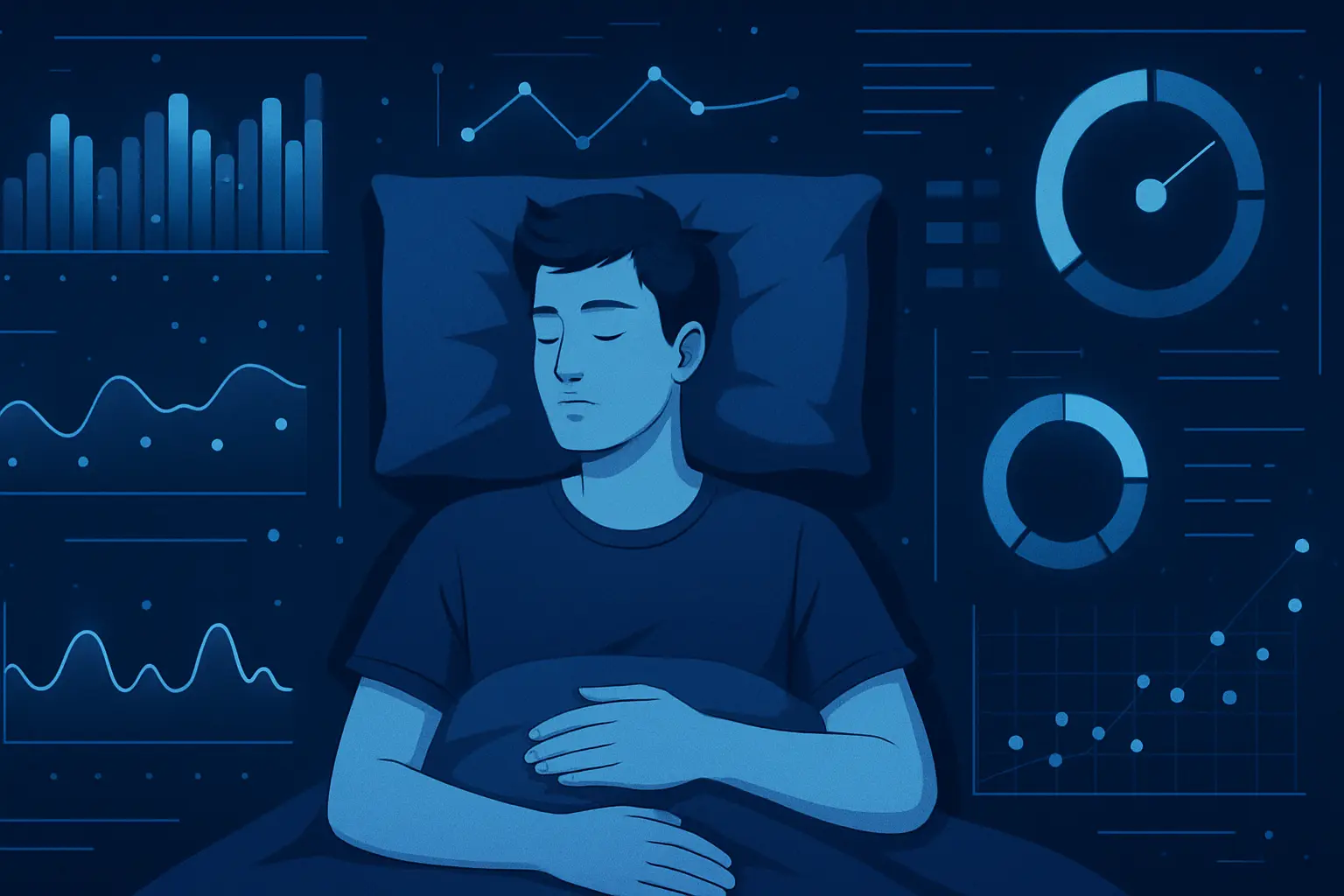Understanding Sleep Efficiency: The Key Metric Most People Ignore
Sleep efficiency might sound like a technical term, but it's one of the most powerful indicators of your true sleep quality. You may think you're getting eight hours of rest — but if your sleep efficiency is low, your body might only be benefiting from a fraction of that time.
In 2024, a comprehensive review presented at the American Academy of Sleep Medicine Annual Meeting (SLEEP 2024) emphasized that sleep efficiency is as important as total sleep duration in determining long-term cognitive and cardiovascular health.
What Is Sleep Efficiency?
Sleep efficiency measures the percentage of time you spend actually sleeping compared to the total time you spend in bed.
It's calculated as:
Sleep Efficiency = (Total Sleep Time ÷ Time in Bed) × 100%
A healthy adult should aim for 85–90% efficiency — meaning that if you spend 8 hours in bed, you should be asleep for about 7 hours and 15 minutes.
Why Sleep Efficiency Matters More Than You Think
When your sleep efficiency drops below 80%, the consequences go beyond simple fatigue. According to a 2023 meta-analysis by Stanford Sleep Health Center, low sleep efficiency is linked to:
- 40% higher risk of developing hypertension
- 33% increase in daytime cognitive lapses
- 25% more likelihood of experiencing mood instability or anxiety
In short, even if you "sleep long," you may not be sleeping well.
The Hidden Causes of Low Sleep Efficiency
Sleep inefficiency often stems from factors that users underestimate:
1. Sleep Fragmentation
Frequent awakenings caused by snoring, apnea, or noise exposure can break your sleep cycles, reducing restorative deep sleep.
2. Mental Hyperarousal
Stress, late-night phone use, or anxiety activate the sympathetic nervous system, delaying sleep onset and shortening deep stages.
3. Irregular Sleep Timing
An inconsistent sleep schedule confuses your internal clock, making it harder for your body to transition smoothly through sleep stages.
4. Environmental Disruption
Even small variations — such as room temperature above 24°C or noise over 40 dB — can cut your deep sleep by up to 20%.
How to Improve Your Sleep Efficiency
Improving this single metric can dramatically enhance your daytime energy and long-term health. Here's a data-backed plan:
Step 1: Track Your True Sleep Efficiency
Use AI-driven sleep apps like SnailSleep to measure your time asleep, awakenings, and snoring patterns.
Its sleep scoring algorithm provides actionable feedback — highlighting when and why your efficiency drops.
Step 2: Create a Stable Sleep Window
Go to bed and wake up at the same time daily, even on weekends. Consistency trains your brain to enter sleep faster.
Step 3: Optimize Bedroom Environment
Keep the room at 18–20°C, limit light exposure, and use white noise or nature sounds to maintain sleep continuity.
Step 4: Address Snoring or Apnea
If the app flags frequent snoring or breathing interruptions, consult a sleep specialist. Untreated apnea can cut sleep efficiency by 30–40%.
A Look Ahead: AI and Personalized Sleep Coaching
Recent research presented at the 2025 Global Sleep Technology Forum suggests that AI-based systems can predict nightly sleep efficiency with 92% accuracy — allowing users to preempt bad nights through lifestyle adjustments.
Future versions of the SnailSleep App are expected to integrate predictive analytics, offering personalized insights such as:
"Your sleep efficiency may drop tonight due to elevated heart rate and caffeine intake. Try a breathing exercise before bed."
This kind of proactive feedback represents the next evolution in digital sleep health.
Final Thoughts
Sleep efficiency bridges the gap between time in bed and time well-rested.
If you've been sleeping long hours but still wake up tired, it's time to look beyond duration and focus on quality.
Start by measuring your sleep efficiency tonight. You may be surprised how much more your nights — and your days — can improve with just a few mindful adjustments.
Related Articles
- Sleep and Mental Health: How Good Sleep Improves Your Mood
- The Cost of Sleep Deprivation: How it Affects Your Brain and Body
- REM vs Non-REM Sleep: Understanding Your Sleep Stages

